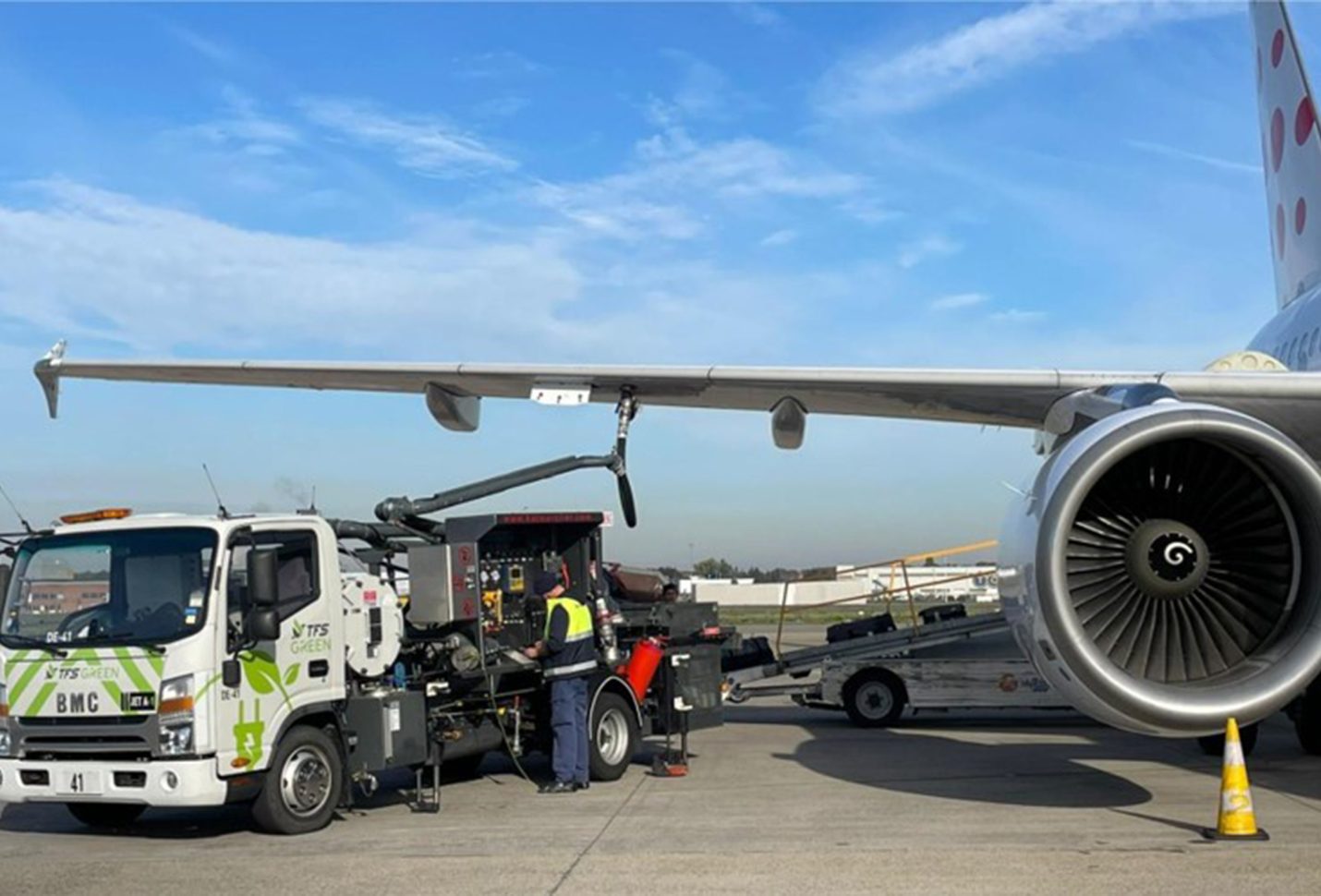
HERE, Amazon engage in $1 bn deal to support AI-powered, live streaming map
HERE Technologies (HERE) and Amazon Web Services, Inc. (AWS) have been engaged in 10-year, $1 ...

Brussels Airport announced offering a sustainable aviation fuel (SAF) incentive at 200,000 euros maximum per airline, thus enabling the airline to cover up to 80% of the additional cost of using this fuel.
The SAF incentive will be made available to all passenger and cargo airlines, for both short-haul and long-haul flights departing from Brussels Airport, in the course of 2024.
This falls within the framework of efforts to accelerate the sustainable development of the aviation sector and encourage the use of sustainable fuel.
Sustainable aviation fuel (SAF) is one of the most promising solutions to enable the transition to climate-neutral flying by 2050. The SAF technology has been tested and approved, and SAF can be “blended” with regular fuel. Aircraft can fly with this blend, in varying proportions depending on the type of aircraft. As electric and hydrogen technologies for aircraft are not yet ready for use, SAF is the only means currently available to the aviation industry to strongly reduce CO2 emissions. However, SAF costs considerably more than fossil fuel, mainly because of the higher raw materials and production cost (such as used and residue plant and animal oils and fats), but also the costs of investing in refineries. And yet airlines are definitely interested in switching to this type of fuel.
Increasing the use of SAF is a priority for Brussels Airport. That is why, as part of the two million euros subsidy awarded in April 2022 by the federal government to finance projects designed to make the aviation industry more sustainable, Brussels Airport Company has submitted a proposal for an incentive program to encourage the use of SAF. This program has been accepted by the Belgian government.
Georges Gilkinet, Minister of Mobility, said ‘Just as the aviation sector must use every means at its disposal to reduce its ecological footprint, we must, in Belgium and across Europe, use all the levers available to accelerate this movement. Thanks to this unique support mechanism, next year we will encourage companies to opt for SAF rather than fossil fuel: this is one concrete way, among others, of testing this means of reducing CO2 emissions in the aviation sector on a large scale. Decarbonization is a major objective, which we can pursue through various means. That is why Belgium has also introduced, at my initiative, a new system of variable charges of air traffic control skeyes for airlines, designed to encourage greener and quieter aviation. Gradually, these measures will make it possible to reduce the carbon footprint of flights departing from our national airport.’
The SAF incentive will be made available to all passenger and cargo airlines, for both short-haul and long-haul flights departing from Brussels Airport, in the course of 2024. The SAF incentive amounts to a maximum of 200,000 euros per airline, which should enable them to cover up to 80% of the additional cost of using this fuel.
‘Increasing the use of SAF as an aviation fuel is a key element in the aviation sector’s ambition to reduce its CO2 emissions to zero by 2050,’ said Arnaud Feist, CEO of Brussels Airport Company. ‘The SAF incentive program is one of the measures that Brussels Airport Company wanted to take to accelerate the sustainable development of aviation and promote the use of sustainable aviation fuels. We are happy that the federal government has accepted our proposal for a SAF incentive. As an airport, within the framework of our European Stargate program, we have expressed the ambition to aim for 5% SAF on total kerosene use by airlines at Brussels Airport by 2026. That is faster than the European target, but we want to fully commit to this together with our airline partners.’
HERE Technologies (HERE) and Amazon Web Services, Inc. (AWS) have been engaged in 10-year, $1 ...
Earth reached its warmest year on record in 2024, the University of Virginia (UVA) said, ...
Orange Egypt alongside the French consulting firm Sofrecom, part of Orange Group, copped “Telecom Review ...


اترك تعليقا